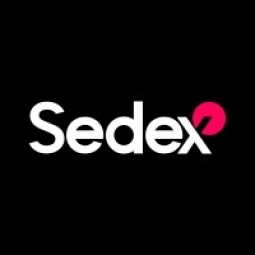Technology Category
- Cybersecurity & Privacy - Security Compliance
- Sensors - Autonomous Driving Sensors
Applicable Industries
- Equipment & Machinery
Applicable Functions
- Logistics & Transportation
- Procurement
Use Cases
- Leasing Finance Automation
- Supply Chain Visibility
About The Customer
Waitrose & Partners is a major British supermarket chain with more than 300 locations across the UK. The company prides itself on its commitment to higher standards of environmental responsibility and the wellbeing of the communities where they operate. As a co-owned business, Waitrose & Partners ensures the lives of all workers are respected. They believe it is highly important to ensure that those who work in their supply chain have safe and hygienic working conditions, are being treated fairly, and are paid correctly. The company joined Sedex in 2015 to ensure ethical due diligence in their supply chain.
The Challenge
Waitrose & Partners, a major British supermarket chain with over 300 locations, was seeking to ensure ethical practices throughout their supply chain. The company believes in maintaining high standards of environmental responsibility and community wellbeing, which they consider integral to good business. However, they faced challenges in ensuring that all sites in their supply chain were carrying out ethical due diligence in line with industry standards. They needed a way to understand more about their suppliers and their ways of working, and to identify any issues that needed to be addressed. They also wanted to ensure that workers in their supply chain had safe and hygienic working conditions, were treated fairly, and were paid correctly.
The Solution
Waitrose & Partners turned to Sedex, a global membership organisation that empowers responsible supply chains, to address these challenges. They used Sedex's Self-Assessment Questionnaire (SAQ) to gain insights into their suppliers' practices, and SMETA audits to do a deep dive into the good practices suppliers were maintaining. Sedex became a one-stop-shop for Waitrose & Partners to improve their knowledge of suppliers’ sites, and to run accurate reports that were imperative to measure progress on KPIs. They also used Sedex’s supplier risk assessment tool, Radar, which provided an overview of the risk information for each supplier site and allowed them to deep dive into individual sites. Radar helped Waitrose & Partners to prioritise high-risk sites, manage their suppliers’ ethical compliance, and learn more about specific sites and their operations.
Operational Impact
Quantitative Benefit

Case Study missing?
Start adding your own!
Register with your work email and create a new case study profile for your business.
Related Case Studies.

Case Study
Smart Water Filtration Systems
Before working with Ayla Networks, Ozner was already using cloud connectivity to identify and solve water-filtration system malfunctions as well as to monitor filter cartridges for replacements.But, in June 2015, Ozner executives talked with Ayla about how the company might further improve its water systems with IoT technology. They liked what they heard from Ayla, but the executives needed to be sure that Ayla’s Agile IoT Platform provided the security and reliability Ozner required.

Case Study
IoT enabled Fleet Management with MindSphere
In view of growing competition, Gämmerler had a strong need to remain competitive via process optimization, reliability and gentle handling of printed products, even at highest press speeds. In addition, a digitalization initiative also included developing a key differentiation via data-driven services offers.

Case Study
Predictive Maintenance for Industrial Chillers
For global leaders in the industrial chiller manufacturing, reliability of the entire production process is of the utmost importance. Chillers are refrigeration systems that produce ice water to provide cooling for a process or industrial application. One of those leaders sought a way to respond to asset performance issues, even before they occur. The intelligence to guarantee maximum reliability of cooling devices is embedded (pre-alarming). A pre-alarming phase means that the cooling device still works, but symptoms may appear, telling manufacturers that a failure is likely to occur in the near future. Chillers who are not internet connected at that moment, provide little insight in this pre-alarming phase.

Case Study
Premium Appliance Producer Innovates with Internet of Everything
Sub-Zero faced the largest product launch in the company’s history:It wanted to launch 60 new products as scheduled while simultaneously opening a new “greenfield” production facility, yet still adhering to stringent quality requirements and manage issues from new supply-chain partners. A the same time, it wanted to increase staff productivity time and collaboration while reducing travel and costs.

Case Study
Integration of PLC with IoT for Bosch Rexroth
The application arises from the need to monitor and anticipate the problems of one or more machines managed by a PLC. These problems, often resulting from the accumulation over time of small discrepancies, require, when they occur, ex post technical operations maintenance.

Case Study
Data Gathering Solution for Joy Global
Joy Global's existing business processes required customers to work through an unstable legacy system to collect mass volumes of data. With inadequate processes and tools, field level analytics were not sufficient to properly inform business decisions.







